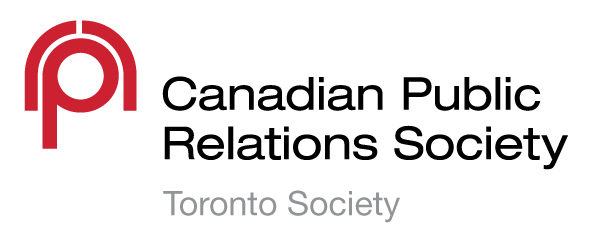Written by: Kaila Currie-Bartlett, public relations graduate, Event & Project Specialist, Fluid & Digital Communications Coordinator, CPRS Toronto & James King, public relations graduate, Account Executive, Earned Media, Technology, Edelman & Co-Chair, Communications & Marketing, CPRS Toronto
2020 was a year filled with wakeup calls for many organizations and PR practitioners when it came to crisis and internal communications. It forced us to address global issues, navigate a pandemic and put transparency at the forefront of the way we communicate with our audiences, stakeholders, as well as internal staff.
As we continue to navigate the pandemic and adjust to employees working remotely for the near future, here are the top three trends to consider as you communicate to your audiences and employees.
Crisis and internal communications remain a top priority
The pandemic made many practitioners deviate from their traditional plans and was a true test to an organization’s internal and external communication plans. It was very unexpected, but an important learning for many.
Far more often than normal, senior leaders and executives were required to get in front of stakeholders to explain strategies and decisions, as well as express any organizational changes. Employees have made it very clear that strong leadership requires transparency even when the news may not be positive. In being upfront and creating a more company-wide dialogue, organizations have the opportunity to build a more trusting environment with more invested employees.
Moving forward, we can expect that many organizations will prioritize crisis and internal communications to ensure the overall health of the business.
Trust – organizations must focus on being authentic and transparent
As noted in the 2020 Edelman Trust Barometer spring update, none of the four societal institutions (government, business, NGOs and media) were particularly trusted to address the onset of the COVID-19 pandemic in both an effective and ethical manner. Furthermore, findings shared in the most recent 2021 Edelman Trust Barometer annual update found that the public’s uncertainty about the future had heightened, especially in light of the impacts of additional crises including the ongoing economic downturn and issues related to systemic racism.
Given all of these major shifts happening across the global landscape, trust continues to be a key priority area that must be directly addressed moving forward. With ongoing problems in the context of systemic barriers and socioeconomic inequalities, trust has become a crucial aspect for leaders to consider when using their influence and power to chart the path forward.
Organizations should look to display their conviction through enacting internal policy changes and industry-wide mandates that demonstrate their commitment to meaningful and deliberate long-term action. From all this, the public will also look to senior C-suite leaders and their integrity to continue acting in a dependable, purposeful and sustainable manner over time.
In partnering with other institutions, companies who lead with facts, act with empathy and position themselves as trusted collaborators seeking to better society will ultimately come out on top as reputable and honest institutions who are well-respected by their audiences.
Credibility – the need for detecting fake news
Over the past century, the way people collect news has become significantly different. From fake social networking accounts to fast journalism and deceptive news outlets, misinformation has the ability to spread quickly and influence an individual and the public’s actions. Through 2020, we witnessed this on several accounts during the American election, throughout COVID-19 and the Capitol Hill riot.
There is no doubt that individuals will be looking to counter misinformation and place a heavy emphasis on the need to detect and identify fake news stories in real-time. Now more than ever, the public will be more vigilant in checking that the source is trusted and that the information shared is accurate.
PR practitioners are going to be challenged with positioning themselves as verified experts, while also being responsible for educating on how and where to find accurate and credible information. Last year, CPRS Toronto hosted Fake News: Understanding the Facts, a virtual event that gave audience members knowledge on how to spot fake news, understand its impact on our lives and the tips needed to validate and disseminate trustworthy information, both personally and professionally.
In whole, the communications industry changed drastically in 2020 and in many cases organizations did so with improvisation. It’s important that through 2021 and moving forward we are prepared with diverse communication tools and strategies.

